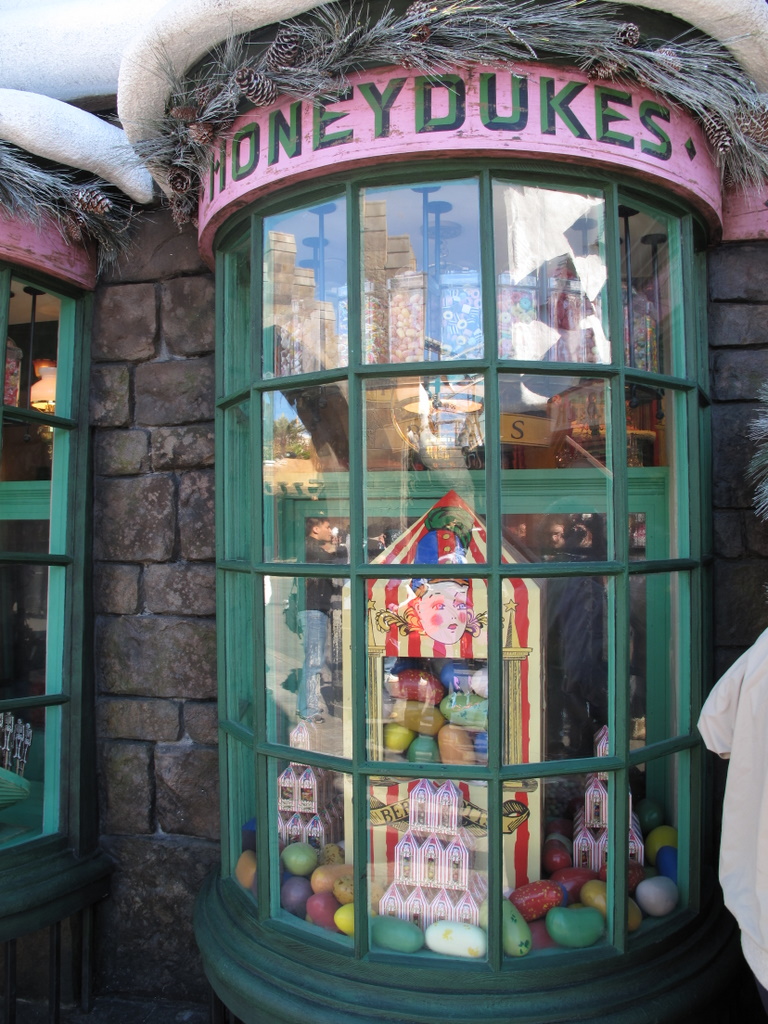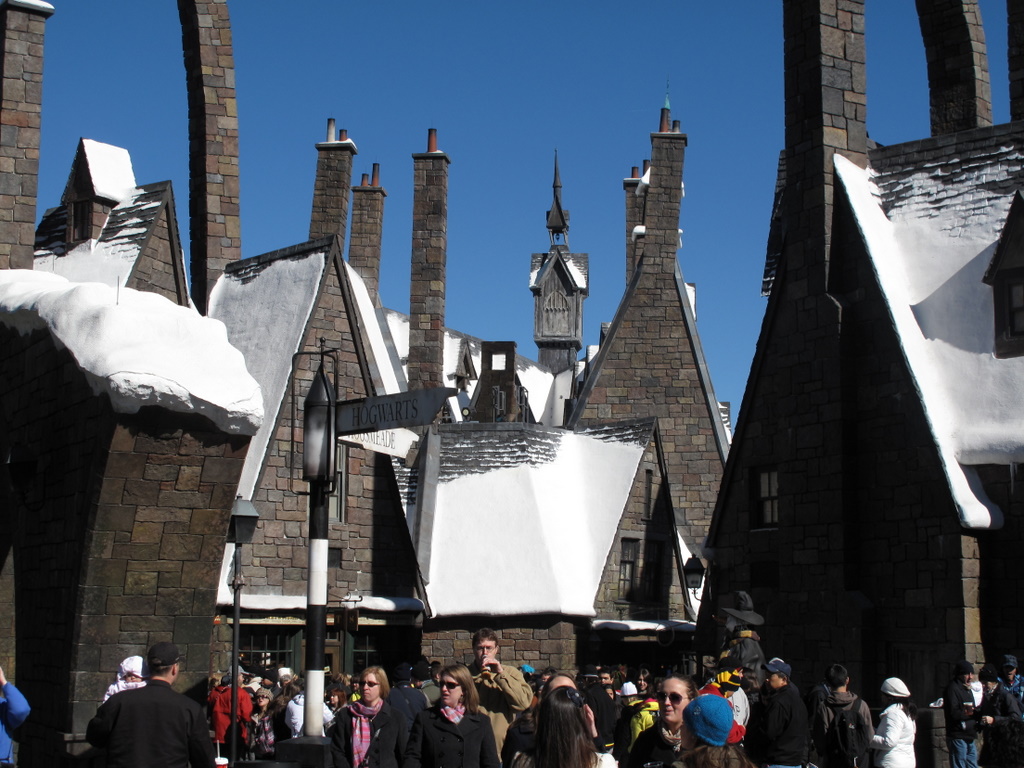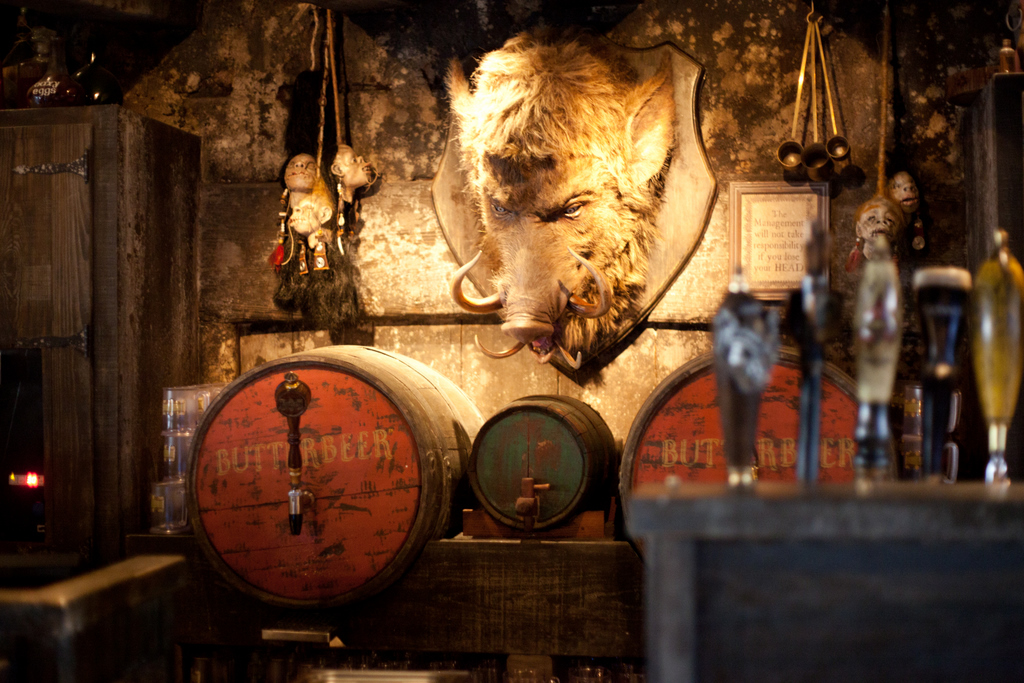"You're a wizard, Harry."
 Very few people get to experience their favorite fairy tale world in real life. Unless you happen to be in a movie made by Tim Burton or your imagination is made in the physical world at an amusement park, there's little chance of stepping into a place that had previously only existed in your mind, stemming from the pages of a book or the visions created by a story.
Very few people get to experience their favorite fairy tale world in real life. Unless you happen to be in a movie made by Tim Burton or your imagination is made in the physical world at an amusement park, there's little chance of stepping into a place that had previously only existed in your mind, stemming from the pages of a book or the visions created by a story.
Leaving no opportunity to capitalize on my generation untapped, Warner Brothers and Universal Studios created The Wizarding World of Harry Potter to make the snow-capped shops of Hogsmeade and the flavor of Butterbeer quite real. I waited six months after its opening to make the trip down to Orlando to see Hogwarts castle for myself, giving the crazies enough time to see it first. This had the added benefit of wintertime, which meant the fake snow looked much more believable than I imagine it did to those July visitors, cursing the heat and peering wistfully at the white stuff. When I dipped into the Three Broomsticks for some shepherd's pie, it was an unusually chilly day in Florida, and I was grateful for the warmth of the fire and the cozy, dark pub atmosphere.
I devoured the first three books in the Harry Potter series in a matter of weeks, checking them out in succession from the Shuman Middle School library (Savannah, Georgia). I was twelve. When Tom Riddle reveals his true identity to Harry inside the Chamber of Secrets, I was absolutely blown away. I have a vivid memory of laying on my bed, flipping the page over and back again, taking in the revelation that Tom Riddle was the younger version, the memory, of the man who would become Lord Voldemort. I had never in my life read such literature, with so many wonderful twists.
Fast forward to 2007, when the seventh and final book was published, and we Harry Potter kids knew much more about the arch-villain of the series. We knew he and Harry shared a strange connection, and we were about to find out just how big. I recall feeling so anxious imagining how J. K. Rowling would end the series, as pundits predicted both Harry's death and survival. Harry Potter's death would be the better literary ending, and would certainly solidify his place as hero and martyr. But I honestly didn't know if she could do that and survive (maybe literally) the angry fan backlash. Yet the option of Harry surviving seemed much too... fairy tale, and depressingly "happy ending," kids' story cop-out.
I won't spoil the ending, but Rowling blew me away. In the midst of some very, very high expectations, as well as many anticipating a let-down, she wrote an ending that went so far beyond anything I could have imagined, I almost couldn't believe it. At the end of it all, I loved the series even more, more than I thought was possible. Even with some of the predictions spoiling certain aspects, and with all of the speculation surrounding it, she managed to surprise and entertain, and bring plenty of tears. She certainly proved Severus Snape to be one of the most interesting literary characters in the modern era.
Without dragging this too far into a nerdy tangent, I simply felt awed and blessed to be able to walk through a city that had existed only in my imagination since that twelve-year-old girl laid on her bed and was transported. Eating one of Hagrid's rock cakes and visiting Zonko's Joke Shop were utterly blissful, and I was an unabashedly happy consumer of the created worlds that thrive on imagination in Orlando.




